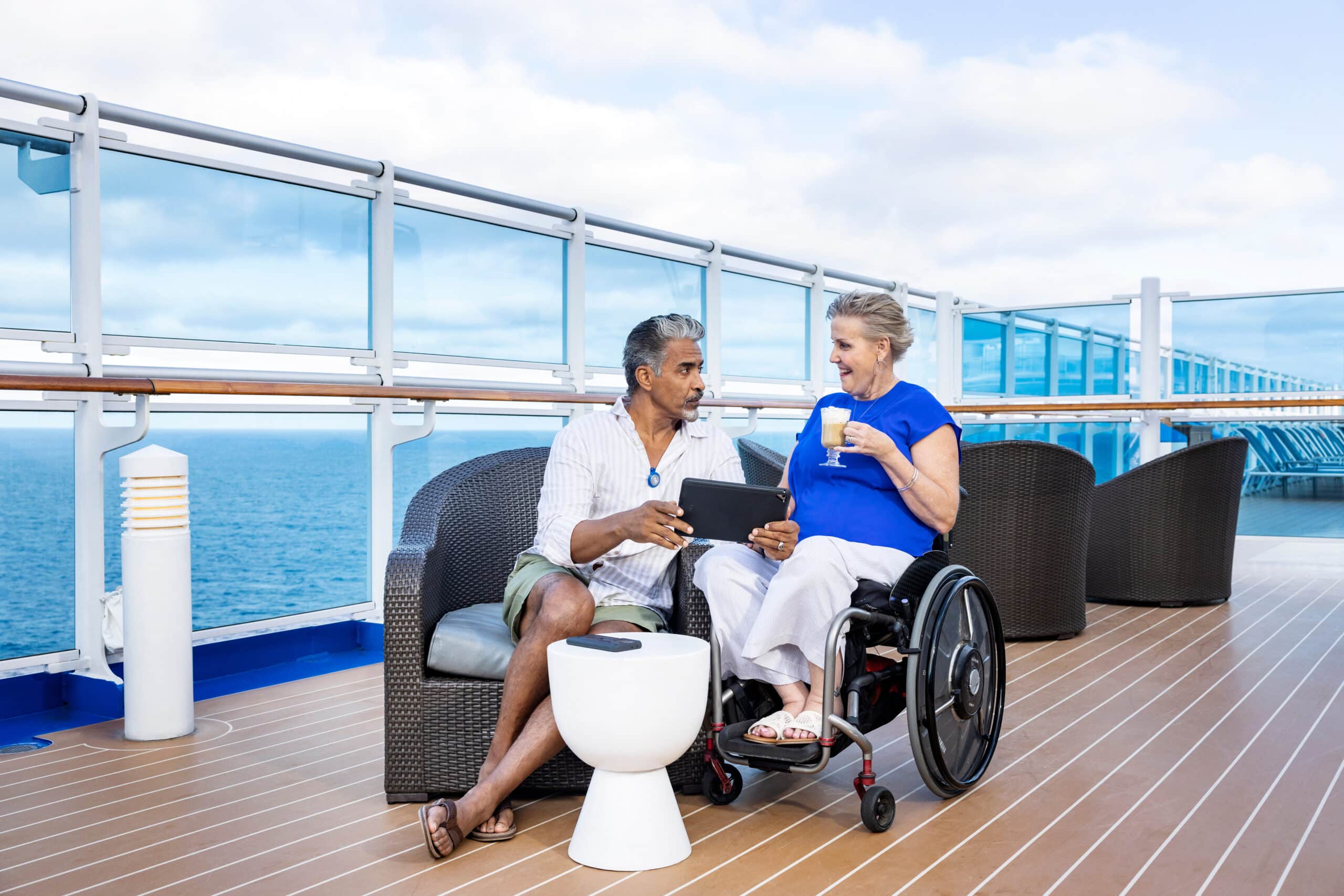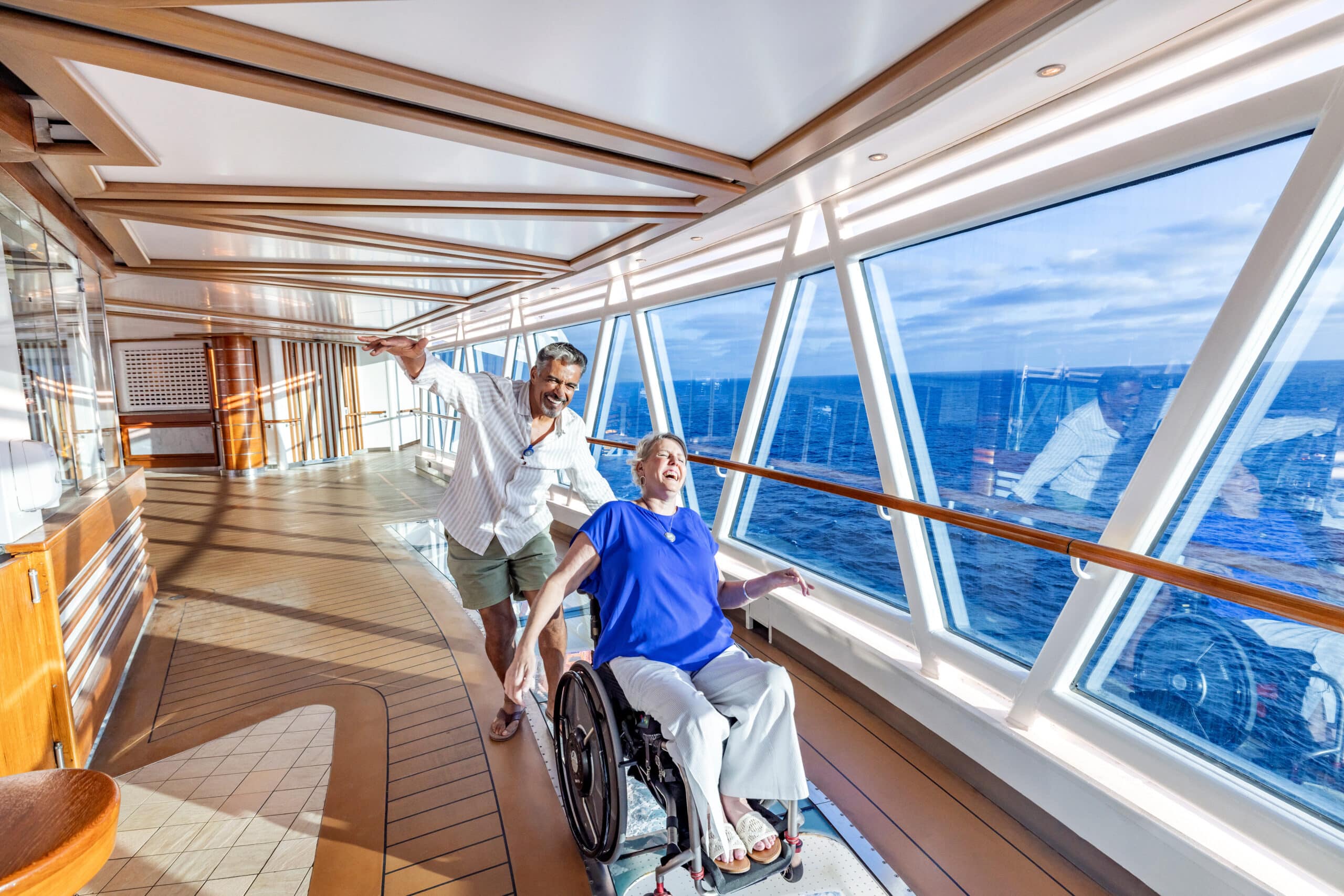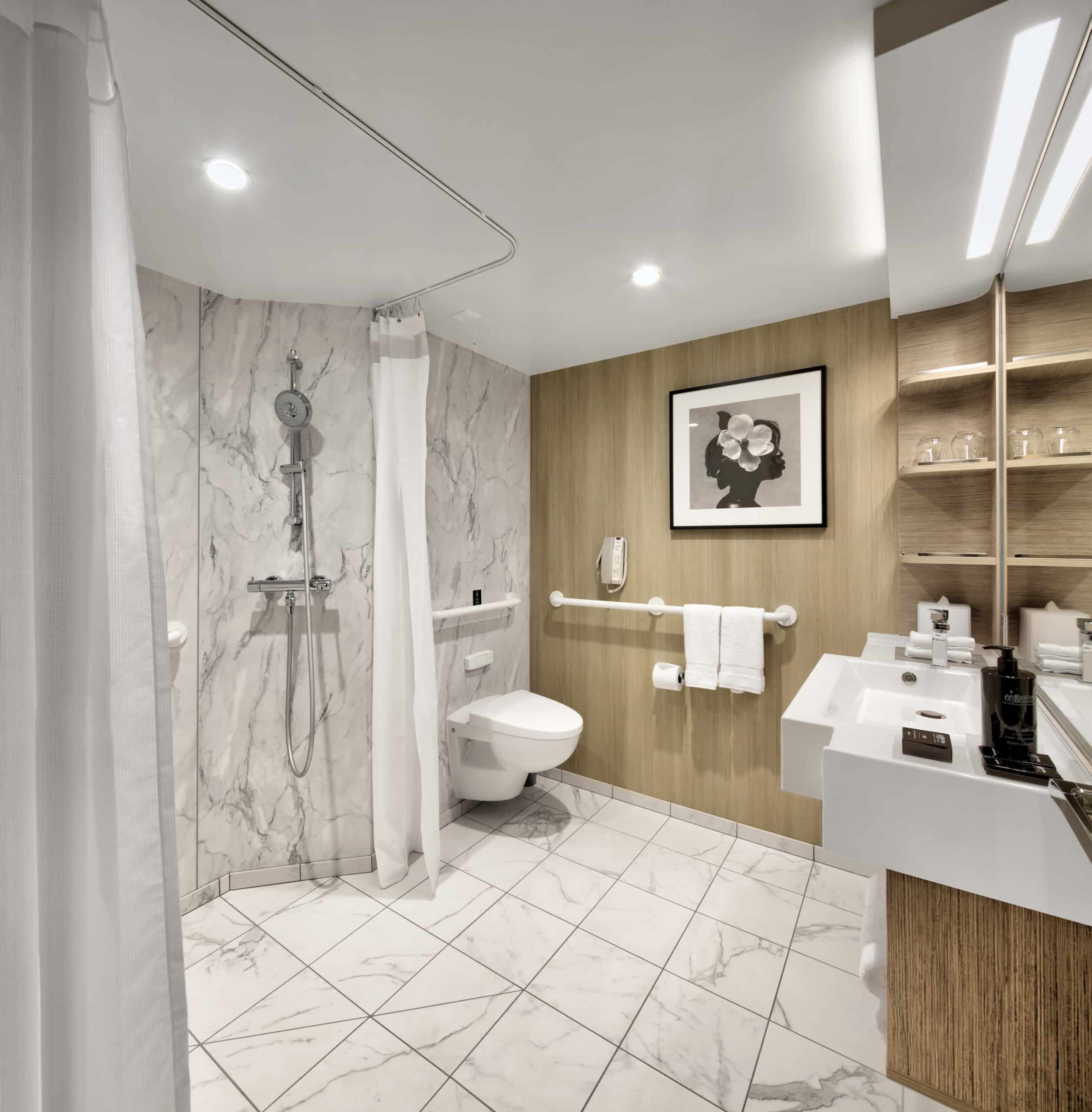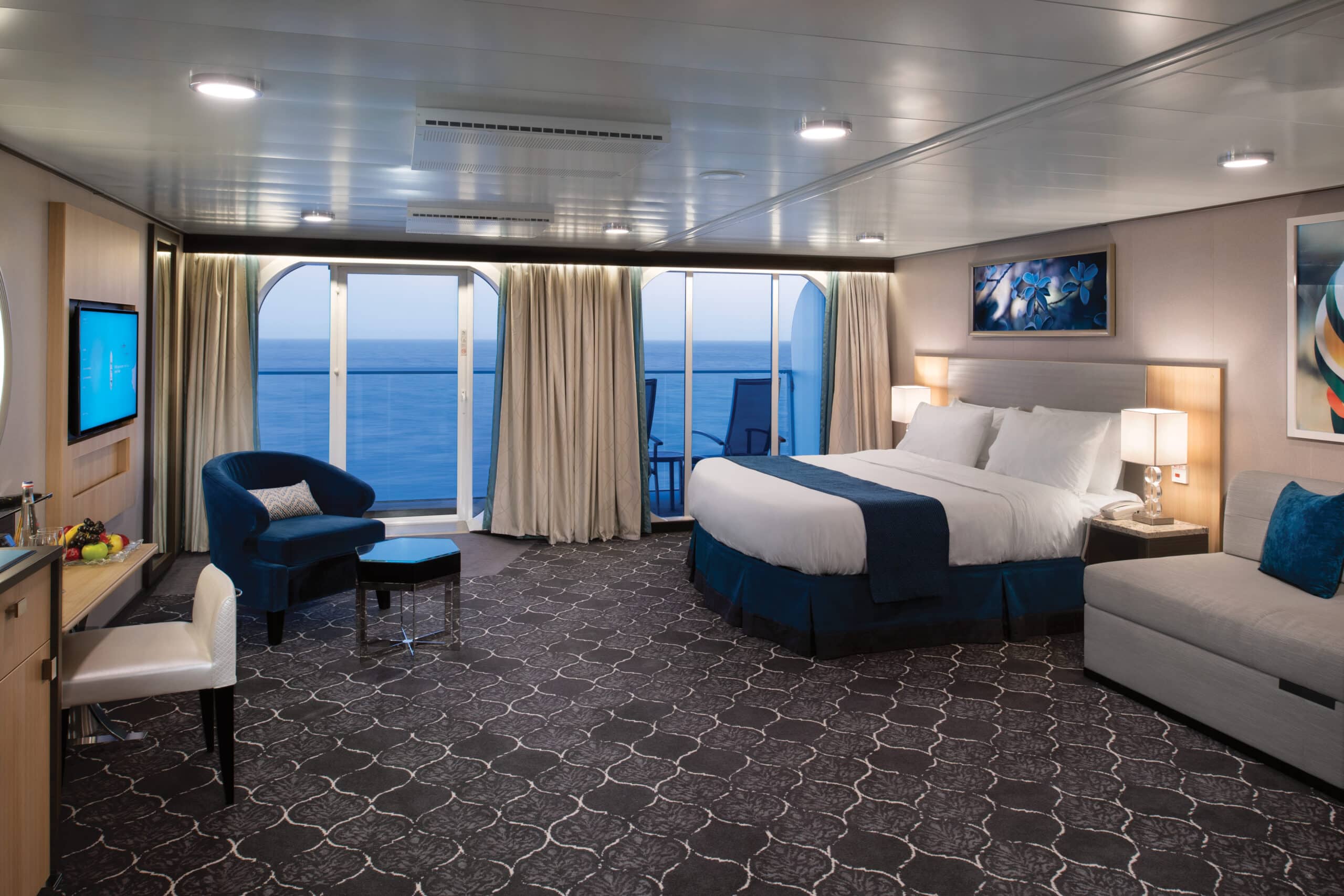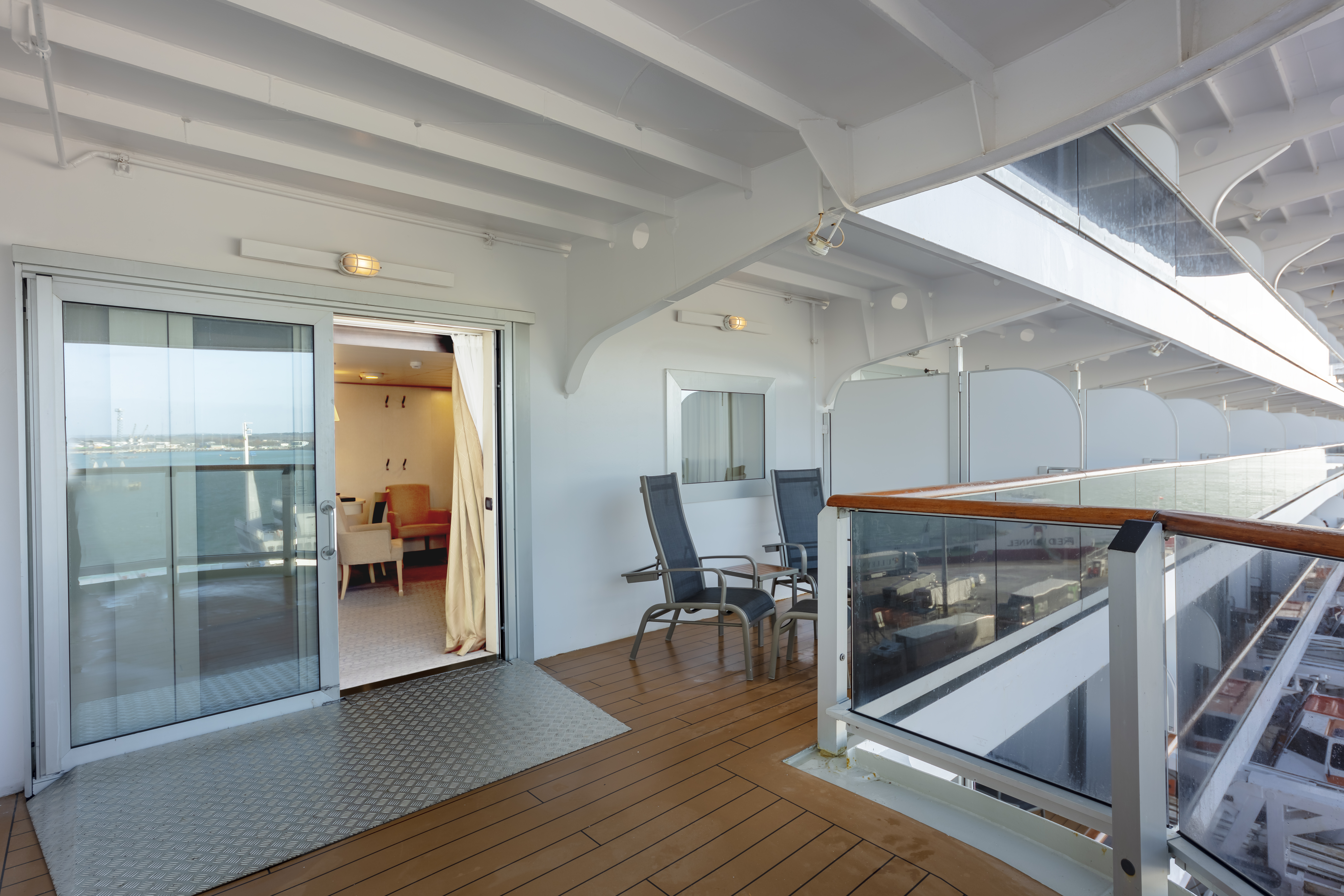Cruising with Ease
With its idyllic destinations, constant entertainment, and comfortable accommodations, cruising is one of Australia’s favourite ways to take a holiday. But, what if you have a physical, intellectual, sensory, or mental disability to consider? Many individuals with disabilities have never considered the possibility of going on a cruise, believing them to be inaccessible. According to the Australian Bureau of Statistics, more than 4 million Australians are living with a disability of some kind. Globally, this figure sits at around 1.3 billion people. Recognising this, the cruise industry as a whole has stepped up its game when it comes to catering to individuals with disabilities.
Newer ships tend to offer more accessible features compared to older ships, including wheelchair-friendly staterooms and hallways, pool lifts, Braille signage, and other features and amenities that make cruising a more accessible holiday option for so many. Cruisers with disabilities have different needs and concerns to consider, so to help you decide whether a cruise is the right experience for you, we’ve created this comprehensive guide to help you set sail with ease.
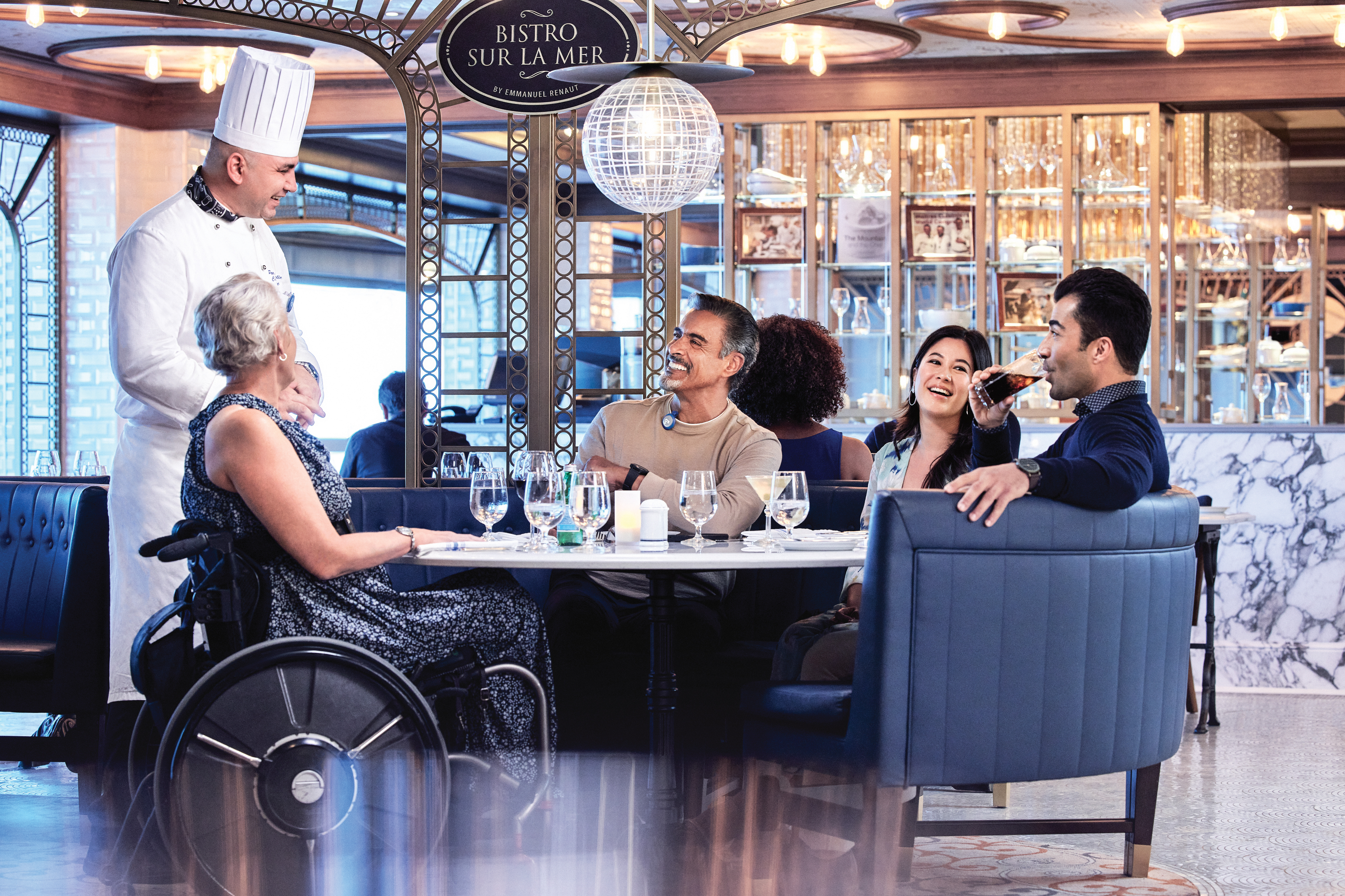
Bistro Sur La Mer onboard Majestic Princess
Top Cruise Lines for Disabled Passengers
For many travellers with disabilities, choosing the right cruise makes all the difference in whether they have an enjoyable experience or not. With a strong emphasis on inclusiveness and exceptional service, we’ve curated a list of some of the top cruise lines that prioritise the needs and comfort of differently abled passengers. Should you have another company in mind that is not included in this list, just ask your cruise consultant to provide you with the details you need.
Catering to Guests with Disabilities
How exactly do cruise lines cater to guests with disabilities and physical limitations? While each cruise line’s services are different, here are some of the most common accesibility services, features and amenities on offer:
⚓ Cruisers with Mobility Issues
Modern cruise ships have made great strides in meeting the needs of individuals with physical limitations. They have revolutionised the design of cabins to provide spacious accommodations that are fully accessible. These specially designed cabins boast wider doorways, roll-in showers, and lowered sinks, ensuring comfort and convenience for everyone. In addition, cruise liners go above and beyond to make sure that all guests can effortlessly move around the ship’s public areas. With elevators, ramps, and modified seating areas, ease of access is guaranteed in entertainment venues, dining areas, and other public spaces. Say goodbye to worries about mobility limitations – cruising has got you covered!
⚓ Cruisers with Visual Impairments
Numerous cruise lines have taken measures to ensure that cruisers who are visually impaired have an experience that is just as enriching as any other passenger’s. Many ships feature Braille signage throughout the ship, which makes it easier for visually impaired cruisers to navigate their way around the ship. In addition, crew members are available to provide personalised assistance, from guided tours, to help reading the menu, they are there to ensure the onboard experience is seamless for everyone. Many cruise companies also accept service dogs on board.
⚓ Cruisers with Hearing Impairments
Most ships are well-equipped to cater to the needs of deaf passengers or those who are hard of hearing. Portable kits that are designed to provide support in various situations such as when there is a knock on your door or a fire alarm goes off, can be provided upon request. Many ships also offer a range of facilities including sign language interpreting services, teletypewriters, and assisting listening systems.
⚓ Cruisers with Autism
Understanding the unique challenges faced by individuals with autism, particularly in a lively and unfamiliar setting such as a cruise ship, several liners have taken proactive measures to provide a soothing and comfortable experience. They have added dedicated spaces to their ships known as Quiet Rooms, where guests with sensory sensitivities can unwind and take a much-needed respite from the stimulating environment. Some provide specialised onboard programs with a broad range of activities and entertainment options to suit the interests and comfort levels of guests with autism. Their crew also undergo extensive training in understanding and assisting individuals with autism so that they can ensure all needs are met and experiences are thoroughly enjoyable.
Booking the Right Cruise for You
When considering your different cruise line options, it’s essential to be aware of the variety of accessibility features. To ensure a comfortable and pleasant cruise experience, here are some key points for you to consider:
⚓ Accessible Cabins
Make sure the cruise offers cabins that cater to your specific needs. Look for features like wide doorways, automatic entry, ample turning space, roll-in showers, lowered counters and closet bars, grab bars in the bathroom, and visual or auditory aids.
⚓ Ease of Access
Check if the ship provides accessibility throughout its public spaces. Look for elevators, wide corridors, ramps, and modified seating in entertainment and dining areas. Also check if they offer pool lifts, as these are crucial for your enjoyment and convenience.
⚓ Onboard Medical Facilities
Many travellers with disabilities find solace in knowing that medical facilities are available on the ship if they are needed. If needed, before you book confirm if the ship provides a well-equipped medical center and inquire about the services it offers. Additionally, if you rely on specific medications, ensure that storage or refrigeration capabilities are available onboard.
⚓ Itinerary and Port Access
While the ship may be equipped for accessibility needs, the adventure awaits at each destination. Research each stop on the itinerary and nearby attractions. Determine if some ports require tenders (small boats) to reach shore, as this can be challenging for individuals in wheelchairs. Make certain that your chosen itinerary offers accessible tender options.
⚓ Reviews and Recommendations
Hearing from fellow travellers with similar needs can provide invaluable insights. Browse travel forums and websites for accessible travel to read reviews from other passengers. Engaging with online communities can help you anticipate potential challenges and discover ways to overcome them. Additionally, read reviews about appropriate travel gear that suits your specific needs, such as mobility aids or adaptive equipment, to ensure a comfortable journey.
⚓ Communication
A responsive and knowledgeable customer service team can significantly impact your experience. Before making a booking, we can reach out to the cruise line’s customer service team with a list of your requirements and questions. Their willingness and ability to assist can serve as a good indicator of the overall experience you can expect. After booking, it’s advisable to reconfirm any special arrangements or accommodations to ensure they will be provided for your journey.
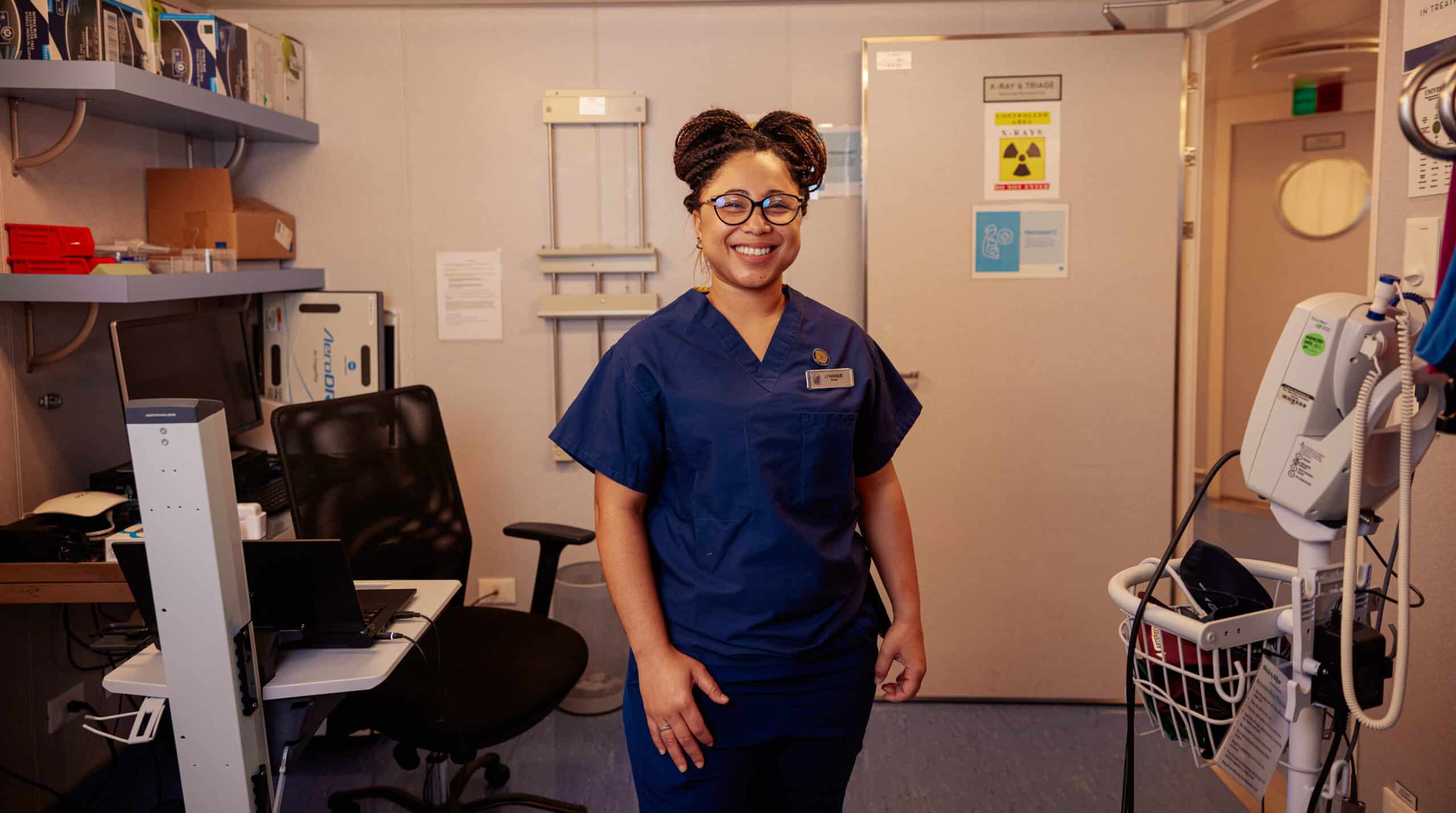
Getting Onshore
Some destinations are more disabled-friendly than others, with some locations presenting challenges for guests when disembarking, and not all shore excursions are suitable for individuals with physical limitations. To ensure a smooth and enjoyable experience, it’s advisable to select an itinerary that docks at ports with piers instead of offering tenders, which may pose difficulties for those with mobility issues. When planning your trip, ask your cruise consultant for insights into each of the ports of call and the accessibility of the shore excursions offered by your line of choice.
Insider Tip for Accessibility
Unfortunately, river cruises generally lack amenities for individuals with disabilities. River vessels tend to be smaller than ocean-going ships, and this lack of space makes it difficult to include accessible staterooms and other features like wider hallways and elevators. Moreover, destinations on river voyages might pose challenges for wheelchair users or those with limited mobility. It’s advisable to consult with your travel advisor to ensure your specific needs can be accommodated.

